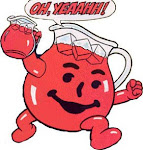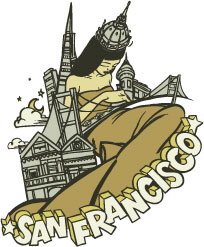
In a 5-4 ruling yesterday, the Supreme Court overturned two of its previous rulings designed to limit the amount of money that big business can funnel into elections.
The majority, led by Chief Justice Jon Roberts, are claiming it as a victory for political free speech. Those who dissent worry about the flood of corporate capital that will inevitably ensue.
Perhaps you're the type of person that thinks so what big business runs everything already. That may be so, but it doesn't make the self-righteous way that Roberts et al wrap themselves in a garb of anti-censorship any less nauseating. It’s also a slap in the face to an American public that’s becoming acutely aware of just how limited it’s influence is.
The question that springs to my mind is just when did corporations become American citizens? And what entitles them to the same protections guaranteed by our Bill of Rights? As far as I can tell it ain’t in the constitution.
Let’s be honest shall we? Corporate “free speech” is not about expressing dissent, it’s about buying off or attempting to buy off those necessary to get what is desired. That might be a bit hyperbolic, but it’s the way things generally play out isn’t it?
The whole affair really brings up a larger issue I have with the way that government is conducted these days.
Unless I’m thoroughly mistaken, our founding fathers intended our government to be a special kind of entity; one beholden to its people. Not in the sense that a company is beholden to its share holders (although that’s much closer to our current situation), but in the sense that its very existence owes to those who’ve entrusted authority in it. This would seem to mean looking out for the populace even at the expense of profit (e.g. who would you rather have inspecting your meat, someone whose top priority is turning a profit for shareholders or someone whose top priority is public safety?).
Unfortunately during the 20th century the US government’s relationship with its people began to change from one of responsibility to the interests of those who grant it authority, to one of a client/server nature. (The problem with this being that obviously those clients with the biggest accounts are of primary importance.)
This change was a subtle process that unfolded over several decades*. It really took flight though, during the reign of the younger, dumber Bush, whose administration, in its race to prove the incompetence of government, couldn’t privatize itself fast enough.
It’s really difficult from here, to see how this money-corrupted system is going to fix itself. Remember when Obama promised an end to the unfettered influence of corporate lobbying? Well this decision just means more money will be thrown around; so more big energy, more insurance, more Wall Street, etc.
But hey who am I to criticize the free speech of others right?
*there's an excellent book called Downsizing Democracy that lays this out in painstaking detail.










No comments:
Post a Comment